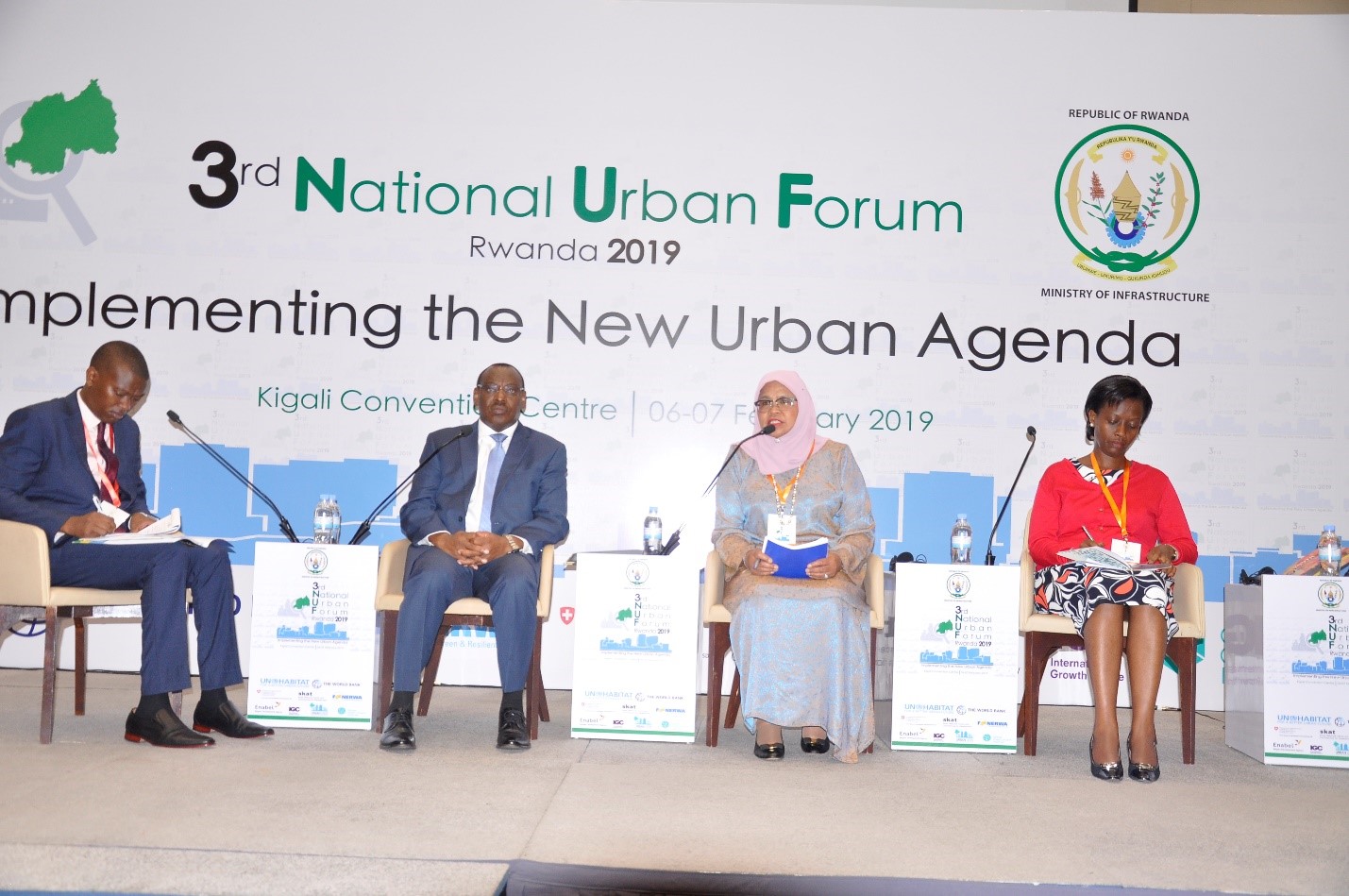Kigali, 6-7, February,2019: The Government of Rwanda in partnership with its development partners World Bank, UN Habitat, Enabel, Swiss Agency for Development and Cooperation (SDC), International Growth Centre (IGC) and Global Green Growth Institute (GGGI) has hosted the 3rd National Urban Forum(NUF) at Kigali Convention Centre.
The Forum attracted 300 hundred participants from different countries and all stakeholders in the sector. The inclusive nature of the Forum, combined with high-level participation, makes it a unique Rwanda conference and the 3rd national gathering on urban issues.
In his opening remarks, the Guest of honor, Minister of Infrastructure, Honorable Claver Gatete noted that the Government of Rwanda “has prioritized urbanization as an engine of socio-economic development and sustainable human settlement with a target to reach 35% of urbanization rate by 2024 from 18.4% in 2017”.
He highlighted that “the Global Statistics Report of 2008 revealed that for any country to achieve its lower middle income status, the urbanization rate should at least be at 35%”.
Minister Gatete said that Urbanization offers an opportunity to increase off-farm employment and development of cities. “It is believed that by pursuing the urbanization agenda, Rwanda will be in a good position to transform its economy from an agriculture-based to a more industrialized and service-based economy”, he noted, adding that “this is in line with government vision 2050 where service and industry sectors are expected to contribute 60% and 30% of GDP respectively by the year 2050”.
Minister Gatete explained how the Government of Rwanda is taking an advantage of existing economic poles – secondary cities with strategic location and economic performance trends, to support, structure, and balance the system of cities including satellite cities and other urban corridors and prioritizing them in terms of investment to fully unleash their economic potential.
The Executive Director of UN Habitat Maimunah Mohd Sharif emphasized on the need to translate all good urban plans into tangible actions. She encouraged all stakeholders to build climate resilience in the city development for sustainability. Discussing the current state of urbanization in Rwanda, The Executive Director of UN-Habitat, said that “at the global level, the UN-Habitat has many platforms which Rwanda can present its work in best practices”.
In her welcome note, the Mayor of the host City of Kigali, Marie Chantal Rwakazina said that the City of Kigali is striving to foster an inclusive, sustainable and participatory approach in all urbanization aspects, keeping in mind the welfare of the future generations.
On his side, the United Nations Resident Coordinator, Fodé Ndiaye insisted on the need to focus on urbanization and potential challenges. "The African urban population is projected to increase to 60% by 2050. Sustainable development and urbanization go hand in hand, cities are spaces for great opportunity if managed well." he noted
The urban forum is meant to explain and provide guidance on how a permanent National Urban Forum can facilitate and support the National Urban Policy process. The forum is a best platform to highlight the benefits brought about by a permanent National Urban Forum, such as mainstreaming of New Urban Agenda, participatory practices; and grounding policy in direct action and concrete interventions in Rwanda.
The Third National Urban Forum (NUF) was designed to support sustainable urban development processes at the country level and the dialogues will embark on how global development strategies can be integrated the global agenda into national strategies. The outcome of this forum raise the profile of urban-related issues at the country level by promoting the understanding, participation, coordination, engagement and debates towards sustainable urbanization strategies, policies and programmes.

 ENGL
ENGL KINY
KINY